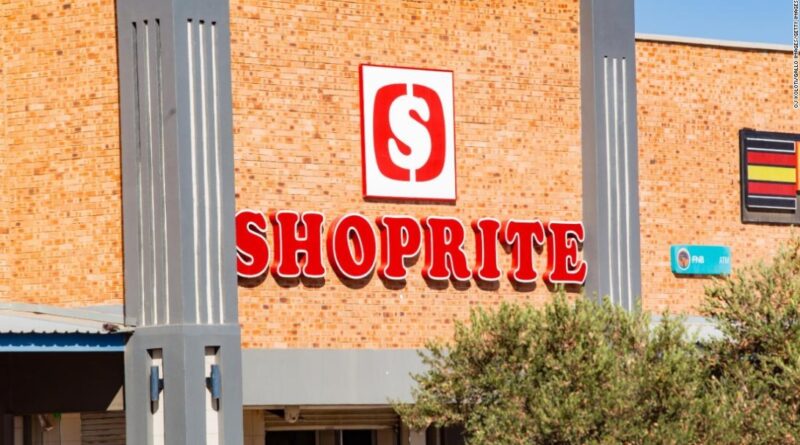Shoprite Closes More Stores Across Nigeria
Shoprite, once the kingpin of Nigeria’s retail supermarket industry, is facing turbulent times. From total shutdowns in Ilorin and Ibadan to nearly empty shelves in Lagos and Abuja, signs are clear: the retail giant is battling to stay afloat.
The Shoprite outlet in Ilorin, Kwara State, has officially closed its doors. A recent visit to the store revealed an eerily quiet environment far from its once bustling atmosphere. Empty shelves, idle staff, and a lack of customer activity marked a stark decline. The bakery barely functioned, and bottled water was used to fill display gaps.
One employee, speaking anonymously, linked the decline to a change in ownership. “It’s due to the recent takeover. We’re hopeful things will bounce back. But it’s been tough,” the staff member said.
In Ibadan, Oyo State, both the Ring Road and Mokola branches have shut down. Despite the closure about a week ago, shoppers were still seen approaching the malls, hoping to find them open. A notice on the door at Ring Road stated:
“Dear esteemed customers, the store is temporarily closed due to circumstances beyond immediate control. Management is working to resume operations soon. Thank you for your understanding.”
No official statement has been released by the new owners. Media consultants connected to the brand have remained silent despite multiple follow-ups.
ALSO READ: Why Nigerian Businesses Must Embrace AI to Stay Competitive
In Lagos, Shoprite’s flagship store in Ikeja City Mall paints a worrying picture. Once known for long queues and fully stocked aisles, the store now has rows of empty shelves, particularly in grocery, frozen food, and wine sections. Foot traffic has dropped dramatically.
Customers whisper about a possible exit, but store officials deny any plans to shut down. Oluwatosin, a store administrator, explained:
“There’s a new management team, and they are renegotiating terms with suppliers. Once that’s done, restocking will begin.”
However, staff members say this situation has lasted several months, with no concrete resolution in sight. One staffer shared frustration:
“We’ve been told every month that things will improve. But supplies keep coming in bits. We’re worried.”
In Abuja, the Jabi Lake Mall outlet is experiencing similar issues. During a recent visit, the store was initially closed due to a power outage. When it reopened, shelves were still largely empty.
Employees revealed that supplies had not been delivered in over two months. One worker said, “Management hasn’t told us anything. We’re just here, hoping not to lose our jobs.” While salaries are still being paid, the silence from the top is causing anxiety among staff.
Despite the chaos, one management official assured that Shoprite is not shutting down permanently. Speaking anonymously, she said:
“We’ve just completed our annual financial audit. That’s what caused the supply delay. By God’s grace, we will restock by the end of September.”
She emphasized that Shoprite’s scale means it won’t just disappear:
“This isn’t a one-man business that can shut down overnight. Things will stabilize soon.”
Shoprite’s struggles mirror a broader trend of multinational companies exiting Nigeria due to economic and regulatory challenges.
ALSO READ: Ezekiel Nathaniel Makes 400m Hurdles Final History
After operating in Nigeria for 16 years, Shoprite Holdings its South African parent company sold off its Nigerian assets in 2021, citing unfavorable market conditions. The local investors who took over have since struggled to maintain operations.
Shoprite’s decline follows a list of major corporate exits:
- GlaxoSmithKline (GSK): Left Nigeria in August 2023 after 51 years.
- Procter & Gamble (P&G): Exited in December 2023, leading to over 5,000 job losses.
- Bolt Food: Ceased operations in December 2023.
- Sanofi-Aventis: Shifted to third-party distribution from February 2024.
- Equinor (Norwegian oil firm): Finalized exit in December 2024, ending 31 years in Nigeria.
Economist Dr. Marcel Okeke warns that unless drastic reforms are made, more companies could follow suit. “The business climate in Nigeria is no longer competitive,” he said. “High inflation, currency instability, and regulatory burdens are pushing companies out.”
He emphasized that foreign and local investors need a stable, predictable business environment to thrive.
While Shoprite management insists the brand will survive, the current state of its operations tells a different story. With empty shelves, worried staff, and full store closures in key cities, the future remains uncertain.
All eyes are now on the end of September a promised turning point. Until then, Nigerians are left wondering: is this the end of an era for one of Africa’s biggest retail giants?
Content Credit: Ohidah Oluwaferanmi
Image Credit: Enugusme.com




